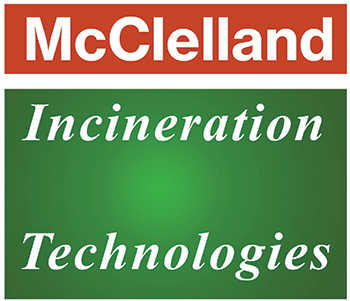- July 8, 2023
- by Chirag
- Mc Clelland
In the ever-evolving landscape of waste management, incinerator technology continues to push the boundaries of efficiency and sustainability. From enhanced combustion systems to innovative emissions control technologies, the latest advancements in incinerator technology are revolutionizing how we manage and dispose of waste. Let’s explore some of the cutting-edge innovations shaping the future of incineration.
For more information and studying further on incineration or incinerator supplier India or Industrial incinerator supplier India, visit www.mcclellandindia.com. It is located in Mumbai, Maharashtra, India with projects in all states of india – Gujarat, Maharastra etc. and all over the world.
Advanced Combustion Systems:
- Modern incinerators employ state-of-the-art combustion systems designed to optimize energy recovery and minimize waste residues. High-efficiency burners, combustion chambers, and refractory materials ensure thorough and efficient waste incineration, maximizing heat transfer and energy conversion.
Emissions Control Technologies:
- Emissions control is a top priority for incinerator operators, and advancements in pollution control technologies have significantly improved air quality standards. Electrostatic precipitators, baghouses, and scrubbers capture particulate matter, heavy metals, and acid gases, reducing harmful emissions to negligible levels.
Waste Segregation and Pre-treatment:
- Pre-treatment processes, such as shredding and sorting, enhance the efficiency of waste incineration by optimizing combustion conditions and minimizing the generation of pollutants. Automated sorting systems and magnetic separators remove contaminants and recyclable materials, ensuring a cleaner and more homogeneous waste stream.
Energy Recovery Systems:
- Waste-to-energy incinerators leverage advanced energy recovery systems to extract maximum value from waste materials. Steam turbines, heat exchangers, and cogeneration units convert heat generated during combustion into electricity or thermal energy, providing a sustainable source of power for local communities and industries.
Integrated Waste Management Solutions:
- In response to growing environmental concerns and resource constraints, incinerator technology is evolving towards integrated waste management solutions. Combined heat and power (CHP) plants, waste-to-energy parks, and circular economy initiatives integrate incineration with recycling, composting, and other waste valorization processes, creating synergies and maximizing resource recovery.
Remote Monitoring and Control:
- Digitalization and automation are transforming the way incinerator facilities are operated and managed. Remote monitoring systems, predictive analytics, and real-time data visualization tools enable operators to optimize incinerator performance, minimize downtime, and enhance safety and reliability.
In conclusion, the future of incinerator technology is bright, driven by continuous innovation and a commitment to sustainability. As we strive to address the challenges of waste management and energy production, advancements in incinerator technology offer promising solutions for a cleaner, greener future. By embracing these innovations and investing in research and development, we can unlock the full potential of incineration as a cornerstone of sustainable waste management.




